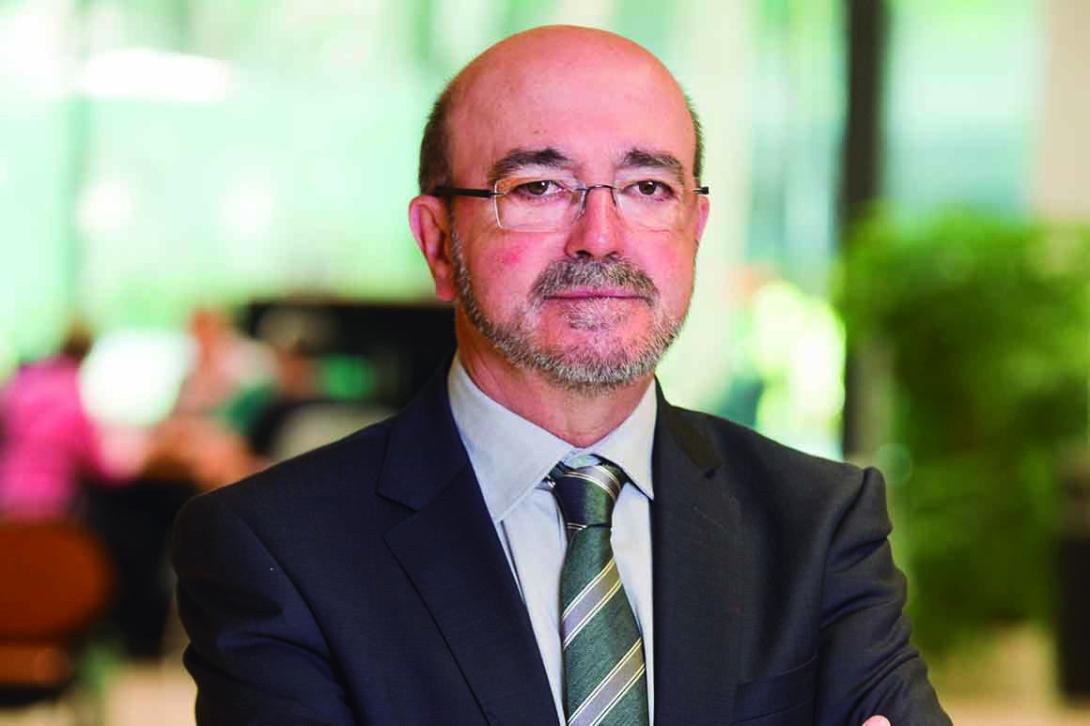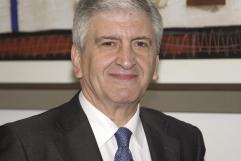
"We must defend the unconditional commitment by healthcare workers"
Private healthcare has been an essential, successful element in the fight against Covid-19. We talked to the chairman of ASC to analyse how they faced up to the crisis.
Looking back, what do you consider was the greatest mistake made during the crisis caused by Covid-19?
An unusual situation such as the one we have experienced is very complicated in all senses, and looking back, we could all have done some things differently. Perhaps we could have made managed the predictions, the resources invested (particularly for geriatrics), or the communication, more effectively, but there is no doubt that the wish to do everything possible to overcome the crisis has been very evident. We should emphasise the responsibility that citizens in general have shown and we must insist on a good healthcare education that avoids uncivic behaviour that encourages the propagation of the virus. As an example of healthcare cooperativism, from a humble point of view, we think that promoting respect and solidarity towards others is always a good decision.
And the best achievement used to reverse the serious situation?
The amazing collaboration amongst the healthcare workers, who are very well trained professionals. We have seen how team work multiplied the chances of success in the care and treatment of each case and many doctors, regardless of their speciality, have helped whenever they could: surgeons have been seeing patients in the Covid-19 monitoring unit, retired paediatricians giving information by telephone to patients’ families…. We must defend the unconditional commitment of a group who at times, were in danger. In short, the greatest achievement has been to put ourselves in the hands of professional criteria and work side by side.
How has your health cooperative acted with respect to other private healthcare organisations? In what aspects was it different?
We are an organisation formed by health professionals, controlled by a cooperative of doctors and in an exceptional situation such as the one we have experienced, the Hippocratic Oath of giving care to those who need it, providing full services to people, before any other criteria or interest, comes into its own. We are not doing it half-heartedly because health is our profession, our responsibility.
What has Assistència Sanitària’s response to this crisis been?
In response to the coronavirus, Assistència Sanitària started up a free telephone line, open to the population as a whole (insured by the entity or not), which received around 6,000 calls; it rescheduled or postponed non-strategic actions; it strengthened the communication support and it approved the easing of bill payment for people whose income had dropped. Likewise, it joined the sectorial fund of 38 million euros to protect the healthcare personnel; it developed a collaboration programme to maintain the medical consulting rooms affected by inactivity and it increased the coordination with the public health sector to prevent its collapse, amongst other steps to minimise the impact of the pandemic to society as a whole. At the Hospital de Barcelona, our reference centre, we attended 600 Covid-19 patients in just 50 days.
How would you evaluate the collaboration between public and private healthcare to face up to the healthcare emergency? Was it effective?
The public-private collaboration has been openly discussed, but it could have been better, because the private healthcare system is ready to act on the front line. Assistència Sanitària was in permanent contact and cooperating with the Department of Health of the Generalitat de Catalunya and with the other healthcare authorities in the country to help to avoid the collapse of the public healthcare resources. At the moment, private healthcare must be considered as a strategic reserve in the case of a new outbreak.
Healthcare personnel have been one of the groups most affected by the crisis. How would you evaluate their action and response?
Healthcare personnel have shown its vocation to serve. In spite of the risk to their own health, and some working conditions that could have been infinitely better, they have given the best of themselves. They have worked together, as a team, in line with the same goal to give the best response to society. The healthcare workers have understood each other very well, they have set an example.
As chairman of a small healthcare system such as Assistència Sanitària, what would you have done differently?
Perhaps we could have started some of the steps that we put into action in the first stages of the pandemic a few days earlier, but we preferred to take a firm step after checking their effectiveness. We have tried to do everything we could to alleviate the effects of coronavirus. Fortunately, we have been able to maintain the most urgent care activity without reaching a critical situation.
What has been learnt from this crisis and what challenges do you think we will have to tackle in the future?
From the human point of view, the awareness of the value of relations between people and the importance of being close to our loved ones, particularly the most vulnerable. From the point of view of management, it has shown that the expert criteria are the right ones for resolving problems efficiently and with guarantee of success. And from the medical and social point of view, I must opt for the spontaneous recognition by society of the work by healthcare professionals, the many tributes and acknowledgements to those who, in many cases, have fought tirelessly to save our lives, while compromising their own safety. The challenge lies in keeping this awareness alive and for all of us to acknowledge the role that doctors play in our lives.
Will we be prepared for a possible new outbreak?
We have used all our efforts to ensure that we are. Since last January, the teams of experts from the infection diseases commission at the Hospital de Barcelona have studied the virus in depth and they have carried out different training sessions. Following the epidemiological forecast, we will adopt the necessary steps to absorb the future cases of Covid-19 safely. The response will depend on the characteristics of this hypothetical outbreak, but as doctors, we will still be here.
How do you foresee healthcare in the future? Will some of the changes caused by Covid-19 stay forever?
We live in an ever-changing, evolving world, which after Covid-19 will have to reinvent itself and, perhaps, it won’t go back to the way we knew it before. For the healthcare system, without any doubt, it has been the greatest challenge in recent decades; a threat to society and to the economy. The physical distance necessary to avoid contagion has meant robots have been introduced into hospitals and it has meant a very fast increase in consultations online and telemedicine, but we have also seen how the role of healthcare professionals has received significant recognition and human supervision is irreplaceable. We have seen this in the ICUs, where many patients couldn’t hold the hands of their relatives and instead, the nurses accompanied them. The changes in healthcare that we will see in the future will involve making it closer and more accessible to the people.


